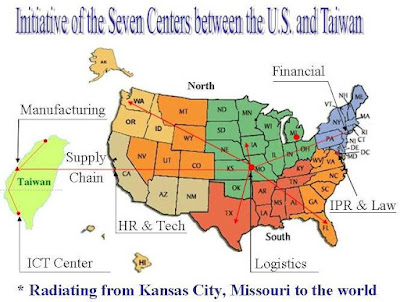The Battle of Carbohydrate
The
The UN Climate Summit—COP 26, which was
postponed for one year to November 2021 because the pandemic of COVID-19, they
resolved that "With the total energy supply remaining unchanged, the
fossil raw materials must be phase-down year by year, while increasing the
proportion of renewable energy." The world has set off a tide of renewable
energy. The total energy supply is called "TES" for short, and it has
become a megatrend in global scientific research from 2022.
In 2009, Peter Li-Chang Kuo who was
invited to the APEC CEO Summit in
Carbohydrate is composed of carbon,
oxygen and hydrogen, which can be biodegraded, and the plants that grow on the
ground are all carbohydrates. Hydrocarbons are composed of carbon and hydrogen,
and are usually buried in the ground as fossil raw materials. Fossils have
caused the pollution.
The subject of "Rebuilding the
Global Economy" is on "Economy". Kuo referred to the industrial
revolution caused by Watt's commercialization of steam engines in 1776 and the
excessive use of coal as "Hydrocarbon Economy" —abbreviated to
"HE". For more than two centuries, HE has caused air pollution, water
is full of poisons, and has also led to many inexplicable wars and diseases.
The way to improve is to return to the "Carbohydrate Economy" —or
"CE" for short.
In fact, CE is
not a new thing, but a natural material used by our ancestors for thousands of
years – such as the application of "Plants".
Just as there was no "fossil"
material before, the Queen of Sheba sailed to visit King Solomon in a sailboat,
and the material of the ship's "canvas and ropes" came from
plants, not nylon. The words "Carbohydrate"
and "Hydrocarbon" could be heard and
argued one after another during the meeting. Kuo looked like to have sparked
the "Dispute of Carbohydrate and Hydrocarbon",
and the "fifty- fifty" were evenly
divided. The result of this Dispute was that "hydrocarbon"
won. Because the
Originally, the
cost of extraction was high, but the crude oil price reached US$100 per barrel
that became worth to drill. In 2014,
In the "IIA-TES", Kuo
specially drew a "
The United Nations discovered the problem of global warming, and signed the Kyoto Protocol at the “Third Conference of the Parties” (COP3) held in Japan in 1997; after 18 years, it was found that it seems to be empty talk, so the Paris Agreement was signed at the 2015 French Climate Summit (COP 21) for replacing the Kyoto Protocol, with the hope of jointly curbing the trend of global warming and strengthening the United Nations Framework Convention on Climate Change (UNFCCC) through collective action. In 2017, the "Green Financial Network System" (NGFS) was established, and it was decided to improve the trend of climate deterioration through financial investment. Peter Lichang Kuo's initiative of "CE" (Carbohydrate Economy or known as Clean Economy) and "Socially Responsible Investment" (SRI) advocated at major international conferences have begun to attract attention.
Nowadays, many countries
choose those barren areas and start planting hemp plants. In fact, George
Washington (1732~1799), the founding father of the
Cited from: https://pkoldstory.blogspot.com/2019/01/blog-post.html




留言
張貼留言